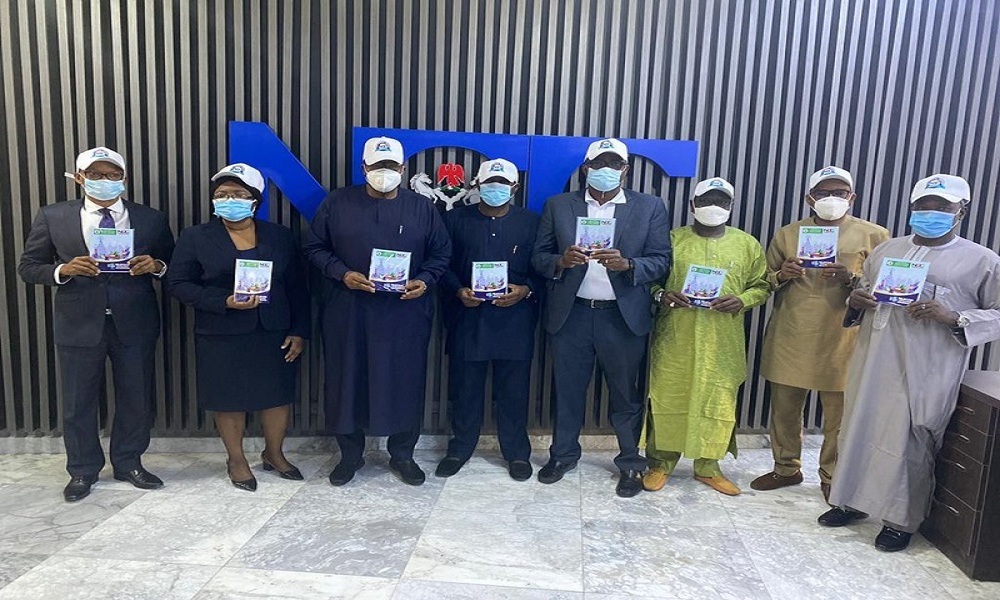Executive Vice Chairman of the Nigerian Communications Commission (NCC), Prof. Umar Garba Danbatta on Monday at a World Press Conference to mark the 2021 World Consumer Rights Day listed various ways the Commission has been protecting telecom consumers through its regulatory activities.
Mandated by the Nigerian Communications Act of 2003 to protect the interest of the consumers, the Commission has religiously done this through subsidiary legislations, guidelines and directions that proactively address consumer concerns and stipulate responsibilities of all stakeholders.
“The NCC had made declarations to curtail excesses of some operators and to expand the frontiers of freedom for the consumers. Warnings had been handed out and fines have been imposed on erring operators. Determinations have also been made by the Commission to ensure consumers are neither shortchanged nor denied their privileges and rights.
“The NCC demonstrated the foregoing to reveal the extent it could go to defend and protect the interests of telecom consumers; and to successively restate its commitment to its ethos of fairness, firmness and forthrightness – the doctrinal tripod of its regulatory mandate,” Danbatta disclosed.
The EVC stated that the NCC has ensured full compliance with Subscriber Identification Module (SIM) cards registration guidelines by the service providers and telecom consumers aimed at ensuring proper registration to stop the use of improperly-registered SIMs, which usage is difficult to track.
According to him, “Having a credible subscriber database helps in tracing a SIM card to the real owner in case of any criminal investigation. This will help in curbing the painful rise in the tempo of kidnapping, robberies, banditry and similar crimes committed with the aid of the use of SIM cards.
“We have made arrests and prosecutions in the past in this regard and through this effort, we have been able to sanitize the telecoms ecosystem of improperly-registered SIM cards that pose threat to national security.
“It is, therefore, pertinent to say that the linking of the SIM and National Identity Number (NIN) database will further help us in this direction toward protecting the consumers and all citizens at large. In this regard, the Commission wishes to echo the voice of Mr. President by thanking all telecom subscribers for their understanding and co-operation in the ongoing SIM-NIN harmonization exercise.
“The Commission has issued a number of directions to service providers in order to ensure consumers are not shortchanged by telecom service providers. Some of the directions include Direction on Do-Not-Disturb, Direction on Data Roll-Over, Direction on Automatic Renewal of Data Services, and Direction on Forceful Subscription to Data Services and Value-Added Services.”

Danbatta said the Management of the Commission also takes consumer information and education very seriously, disclosing that only recently, it approved the re-structuring of its legacy consumer outreach and engagement programmes.
He noted that these modifications were made to increase the Commission’s reach to telecom consumers wherever they are while also observing COVID-19 protocols.
He listed some of the new information and education programmes to include Telecom Town Halls on Radio, a phone-in dialogic programme to be hosted via radio stations across the country where consumers at the grassroots level will be engaged in their own local language; and Telecom and The Citizen – a biweekly Twitter Live Chat targeting social media users.
It also includes Telecom TV Dialogue – a monthly television-based discourse on topical telecom issues; and Telecom Consumer Conversations – which is segmented and targeted at different consumer groups including The Village Square Dialogue, The Telecom Public Sphere, The Professionals’ Dialogue, Campus Conversation, Market Conversation and the NYSC Conversation.
“The flagship outreach programme, the Telecom Consumer Parliament, is still up and running. Similarly, other Information, Education and Communication (IEC) materials like digital banners and factsheets in bookmarks format, have been remodelled in a way that deliver lasting value to the consumers.
“Today, and right here, we are unveiling a new Consumer Handbook – a compendium of consumer information materials compiled to enhance education and protection of the consumer,” the EVC stated.
Danbatta noted that in keeping with the global best practice of digital public communication for information and complaints management, the Commission continued to leverage social media platforms of Facebook, Twitter, Instagram, LinkedIn and YouTube, to inform and educate consumers and to use them as complaints channels for the Commission, adding that the NCC Consumer Web Portal serves as an alternative online channel for lodging complaints and making enquiries.
According to him, “The specially created toll-free number 622 and DND shortcode 2442, are as active as ever. They are emplaced respectively to enable consumers to escalate unresolved complaints earlier reported to service providers, and to manage unsolicited messages. Just last month, we provided evidence that “NCC’s DND crashes unsolicited SMS by 96.6% in three years”.
“Also, the results we are getting through the NCC Toll-free Number 622 have been phenomenal. Thousands of complaints have been received from consumers and escalated by the Commission to service providers for a quick resolution to the satisfaction of affected consumers. In our latest report, of the 11,327 genuine consumer complaints received through the 622 between 2019 and 2020, 11,288 which translate to 99.1%, have been successfully resolved.
“Furthermore, the Commission has reviewed the Consumer Complaint categories and Service Level Agreement (CC/SLA). The CC/SLA provides complaints categories, the timelines for resolving complaints and prescribes penalties for defaulting operators. This has ensured quantifiable improvements in the consumer complaint management process by the operators.
“Additionally, in view of the challenges of security in the country, the Commission has completed and launched Emergency Communications Centres (ECCs) in 18 states and the Federal Capital Territory. The process for the completion of the centres in the remaining states of the federation is ongoing.”
Danbatta disclosed that the toll-free three-digit 112 Emergency Number was created to bring succour and necessary assistance from appropriate Response Agencies (RAs) to address the emergency needs of citizens.

